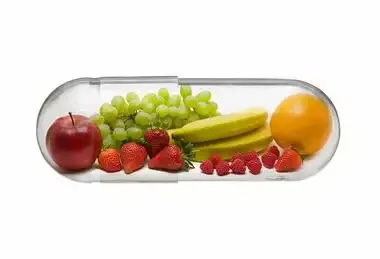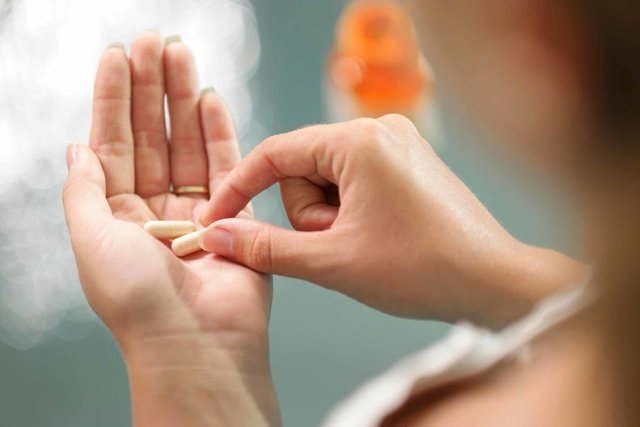Don’t pop supplements randomly....


Some of us are in the habit of taking vitamin supplements either because we don’t consume a healthy diet of fresh fruits and vegetables or regularly end up skipping meals due to work schedules or simply because we want to enhance our overall health. Some people have been taking various supplements for years now. A recent study says concluded that taking vitamin supplements doesn’t prevent cardiovascular problems. We asked experts for their take on the matter.
.jpg)
12 Vitamin Mistakes You Might Not Realize You’re Making Vitamins and supplements, which some 50 percent of Americans take regularly, might optimize your health—if you're smart about how you use them. Here's what to know about popping those pills safely.
Unless your doctor recommends one for a specific reason, this daily habit may be worth skipping. “For the most part,multivitamins are a poor investment.“They just give you expensive urine.” University researchers concluded that popping a multi does not lower disease or mortality risk. Experts agree that your best bet is to get vitamins and minerals from whole foods. Don’t miss these other 8 vitamins that are useless or even dangerous.
WHAT RESEARCH SAYS
Analysing information from 18 previously published studies, this new study examined the link between multivitamins and mineral supplements and the risk of certain cardiovascular problems, suggests that vitamin and mineral supplements do nothing to prevent heart disease. The researchers tracked over two million people in five countries for an average of 12 years, and concluded that multivitamins did not prevent heart attacks, strokes, or death from heart disease.
Study lead author Dr Joonseok Kim said, “It has been exceptionally difficult to convince people... to acknowledge that multivitamin and mineral supplements don’t prevent cardiovascular diseases.” He added, “I hope our study findings help decrease the hype around multivitamin and mineral supplements and encourage people to use proven methods to reduce their risk of cardiovascular diseases — such as eating more fruits and vegetables, exercising and avoiding tobacco.”
PEOPLE HAVE BEEN POPPING MULTIVITAMINS
So do our cardiology experts agree with the findings of the study? “It is very hard to convince people as for the last two to three decades they have been popping these pills. There is no data to support that having multivitamins will reduce your heart risk. In fact, some of the vitamins in excess can increase one’s risk of heart disease because they are extracted from various sources,” opines Dr Bipeenchandra Bhamre, cardiac surgeon, Sir Harkisandas Narrottumdas, Reliance Foundation Hospital, who asks his patients to eat fruits, green vegetables, carrots, etc, go out in the sun, as naturally available vitamins are better for our body rather than supplements. One must consult a doctor before starting over-the-counter multivitamin/ antioxidant pills.
THERE’S NO SUBSTITUTE FOR GOOD NUTRITION AND REGULAR EXERCISE
“Nutritional studies have established that fruits and vegetables are a good source of many vitamins and are associated with a lower risk of stroke and coronary heart disease. There is no substitute for good nutrition and regular exercise. This meta-analysis has clearly concluded that multivitamins are unnecessary and does not benefit in cardiovascular and stroke outcome,” explains Dr Santosh Kumar Dora, senior cardiologist, Asian Heart Institute.
Dr Nilesh Gautam, senior interventional cardiologist, Asian Heart Institute, too, agrees with the study, saying that lifestyle modifications in the form of regular 30 minutes of aerobic exercise a day, healthy diet, cessation of smoking, control of blood sugar and blood pressure are most important.

Every body is different, so choosing vitamins and supplements willy nilly—or trying brands your friends have recommended—isn’t necessarily what’s best for your individual needs. Dr. Emhof gives his patients a blood test to suss out common deficiencies such as vitamin D and B12, and then doles out recommendations based on the results. For other issues, your doctor may suggest supplements based on medical history. For example, if you are grappling with nighttime leg cramps, you might have a magnesium deficiency not a potassium deficiency, he says. Find out how to spot other signs you need more potassium.

WHO SHOULD TAKE VITAMINS AND SUPPLEMENTS?
If despite consuming a healthy diet, levels of iron and vitamins in the blood are low and the patient is showing signs of deficiency, then only after a proper physician’s consultation, multivitamin and supplements should be started, cautions Dr Gautam. If a patient has blood loss or malabsorption syndrome or coming off a major surgery or not able to take oral diet then, these supplements should be added.
Some specific categories of patient may need vitamin supplements, says Dr Dora. A pregnant woman will need folic acid supplement for proper prenatal development. Vegans may lack Vitamin B12, an essential vitamin for nerves and blood cell formation. So they may need Vitamin B12 supplement if the level is low in blood. Vitamin D3 deficiency is common in population as many are not exposed to the sun because of their work schedules. If the levels are low, then Vitamin D3 supplement is needed. It helps in absorption of calcium and phosphorus from the intestine and helps in bone growth. People should not self-medicate.

If you’re living in the northern part of the country during a snowy winter, you’re probably short on vitamin D—but it’s also likely true for people living in the sunny south, While the Institute of Medicine recommends that adults 70 and younger need 600 international units (IUs) of vitamin D per day, “You need a blood test to determine the right amount for you,” he advises. Before you head to the pharmacy, here’s what you need to know before taking D supplements.

Vitamins, to spare you the suspense, are organic compounds that we tend to come across in food—and without which we would die. There are 13 human vitamins: A, C, D, E, K and seven B vitamins (thiamine (B1), riboflavin (B2), niacin (B3), pantothenic acid (B5), pyroxidine (B6), biotin (B7), folate (B9) and cobalamin (B12)). But if that was all Vitamania was about, it would have made for a short book. Instead Price explores how the discovery of vitamins has shaped our diet, and our perspective on health.
Although the book was published in 2015, it couldn’t feel more relevant today. From Gwyneth Paltrow to Alex Jones of Info Wars, it seems like everyone is promising that vitamins— and their creepy alter ego, supplements—can soothe what ails us. Supplements are now a multi-billion-dollar industry that many say will continue to grow. But we're not getting any healthier. Last year, U.S. life expectancy declined for the first time since 1993. How did we become a vitamin and supplement obsessed society, and why isn't that keeping us from getting sick?

@rajkushwaha you were flagged by a worthless gang of trolls, so, I gave you an upvote to counteract it! Enjoy!!